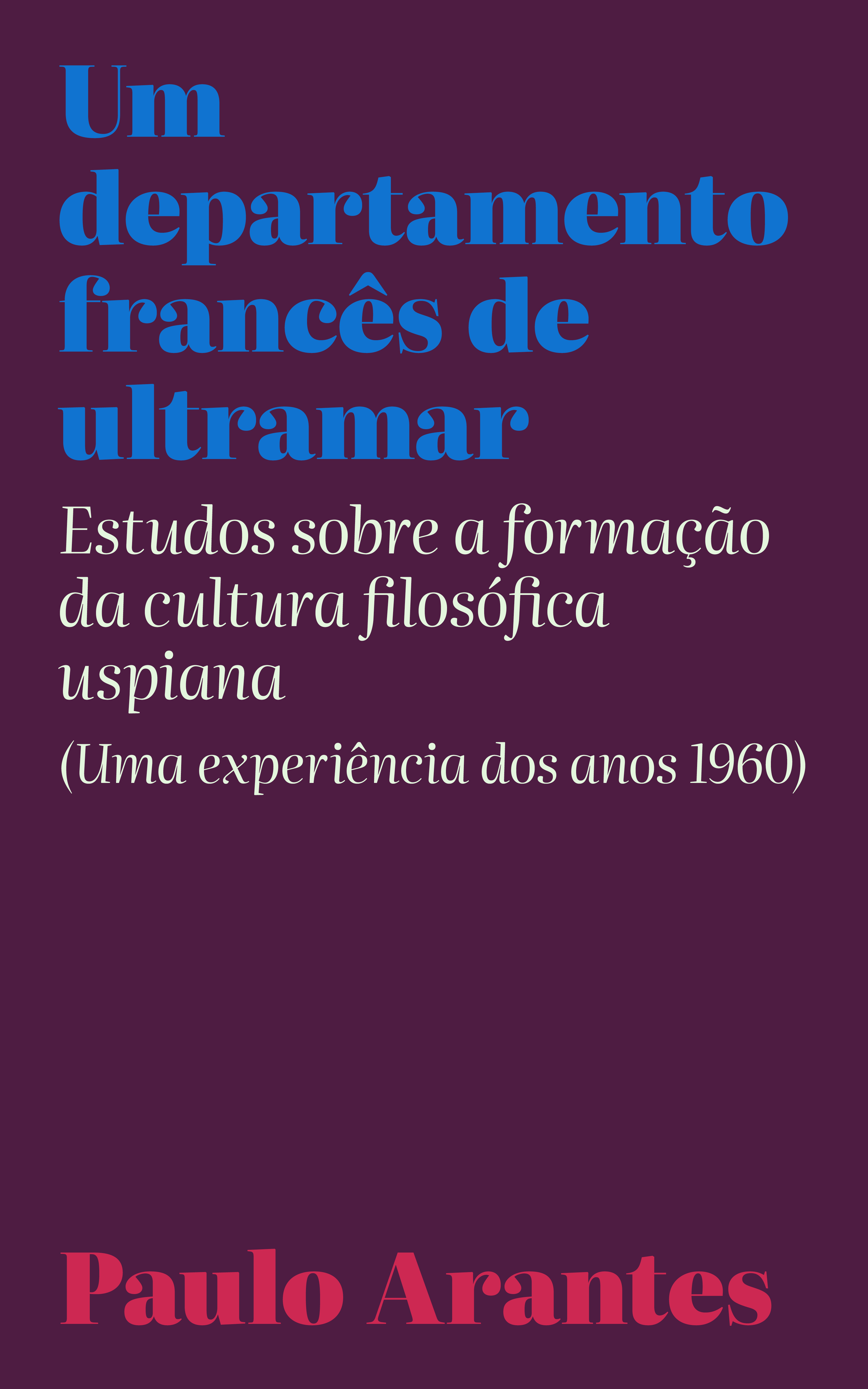A French Overseas Department
Studies on the formation of USP’s philosophical culture (a 1960 experience) [1994]
1994
Synopsis
This book, as attested by its subtitle—Studies on the formation of USP’s philosophical culture—, is an historiographic effort to retrace relatively continuous evolutionary lines; in other words, it is a project that favors formation periods. In this series—which includes Formação do Brasil Contemporâneo (The Formation of Contemporary Brazil), by Caio Prado Jr., and Formação Econômica do Brasil (The Brazilian Economic Formation) by Celso Furtado, among others—, Arantes is closer to Antonio Candido’s theoretical horizon in Formação da Literatura Brasileira (The Formation of Brazilian Literature), both in its subject matter—the emergence of a cultural system that overcame sudden strays and independent intellectual curiosities and, through the intertwinement of works and specific problems, managed to “filter” the international supply of theories and models—and in its non-prescriptive description of the intellectual experience’s material accumulation through a process that collectively resulted in the historical productive force of an effective philosophical life. It is not, however, about the historical rearrangement of an accumulation period. This book itself refutes the idea of a philosophical continuity in Brazil, critically and thoroughly revisiting the main characteristics and outlines of its predecessors’ works (not only by Cruz Costa, the failed historian of Brazilian philosophy, but also by members of that 1960s generation that closed the formative cycle of Brazilian philosophy). Arantes broadens the scope of the philosophical essay-writing implemented by Bento Prado Jr. by adding Sociology and History to the dialogue proposed by the author between Literature and Philosophy, turning the expressive moment not into a way of revealing the rarefied space of language, but into an essential element of the (always mediated) investigation of culturally preformed objects. By examining the “belief in the connaturality between Philosophy and Literature”, Arantes deciphers not only the assumptions behind Bento Prado’s views—the theory of a “literary absolute”—but also reaches the “vulnerable core of Literature’s French ideology”. The two dimensions of this approach allow at once for interpretation of, on the one hand, European (or even world) culture, the core, and, on the other, Brazilian intellectual life, the periphery.
This approach results—to put it bluntly—from the Brazilian social and intellectual experience, which leads us, in a certain way, to the “sense of dialectics”. As that experience is transposed to the historical realm, we find the same concern as Giannotti and Ruy Fausto over the meaning of dialectics that gave rise to the Brazilian chapter—which this book somehow reinvents—of Western Marxism.
(Ricardo Musse, flap from the printed version)
Also available for download is the special issue of Caderno Mais! (from the newspaper Folha de S.Paulo – February 6,1994) devoted to the book launch, titled “A Aventura da Filosofia Paulista” (“The Adventure of ‘Paulista’ Philosophy”). It contains an interview with Paulo Arantes by Fernando de Barros e Silva and Vinícius Torres Freire.
Keywords: Philosophy and Literature, Philosophical culture, USP, French Mission, 1960s, Philosophy in Brazil, Formation, Structural Method, Jean Maugué, Víctor Goldschmitt, Martial Gueroult, Gérard Lebrun, Gilles-Gaston Granger, João Cruz Costa, Bento Prado Jr., José Arthur Giannotti, Oswaldo Porchat, Ruy Fausto.

Series
Categories
License

This work is licensed under a Creative Commons Attribution-NonCommercial-NoDerivatives 4.0 International License.


